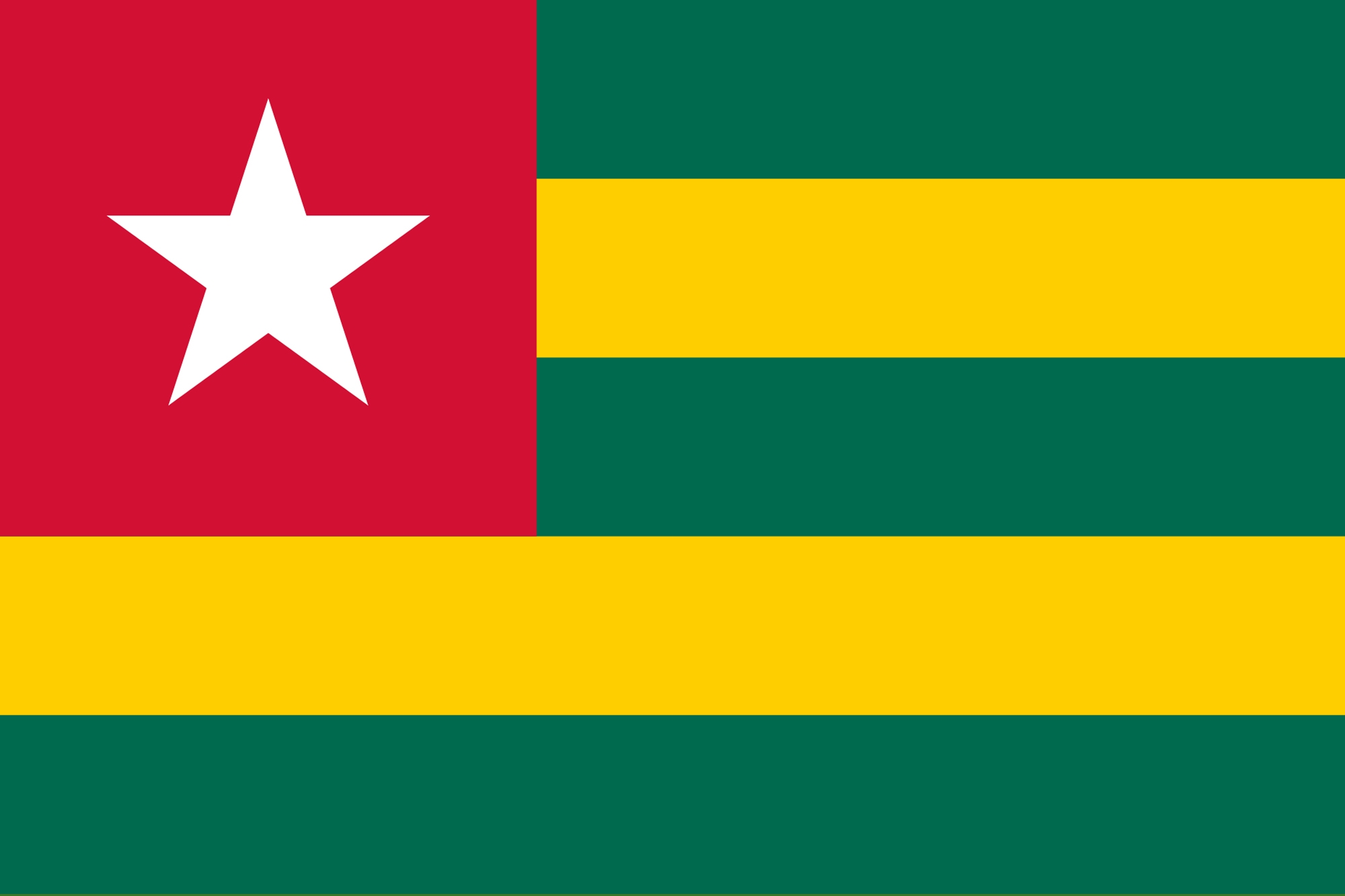Togo consists of a long strip of land in West Africa. It shares borders with three countries that include Benin, Burkina Faso and Ghana. It has a coastline in the south along the Bight of Benin of the Gulf of Guinea in the North Atlantic Ocean. Togo is primarily divided in six geographic regions featuring low – lying sandy beaches, tidal flats, shallow lagoons, plateau and mountains.
KEY SECTORS IN TOGO
Agriculture
Agriculture is the primary economic activity of Togo, with a GDP contribution of 40%, 20%, of export income and employment for over two-thirds of the working population. The majority of the population is employed in the production of food and cash crops. The key staple crops are maize, cassava, rice, peanuts and sorghum. Coffee, cocoa and cotton are the key cash crops that are exported.
Energy
Togo produces 73% of its total energy from such as wood combustion and electricity, and remaining from hydro-carbons. The government has been focusing on creating autonomy in generation and distribution of energy, whilst diversifying the energy sources to cleaner and renewable energy. The government is taking steps for sustained supply of energy at a competitive cost. These include construction of Contour Global Togo SA (100MW power station) and completion of regional projects such as connection of the CEB network to the Nigerian TCN network and the African gas pipeline project.
Mining and Quarrying
The mining of phosphate rock dominates the mining industry of Togo. The country was ranked the 14th largest producer of phosphate rock in 2009. Other mineral commodities produced in the country include cement, clinker, diamond, gold and limestone. The phosphate reserves in Togo are estimated to be about 60 million tonnes. Societe Nouvellesdes Phosphates (SNPT), a state-owned firm, is the key producer and has invested about US$ 62 million in mining and excavation materials, and is expected to increase production to about 3 million tonnes. The government has encouraged private sector investment in the field of cement production to increase production to 2 million tonnes.
Information, Communication and Technology
Togo is part of the West Africa Cable System (WACS) project, an ambitious project that is laying underground fibreoptics cables to link West Africa with Europe. The telecommunication sector in Togo is booming with a targeted market penetration rate (new subscriptions) of 60% by 2015. The government is keen on reviewing the regulatory framework and opening up the market for other players and investors.
Tourism
Tourism is fast becoming a key contributor to GDP, underpinned by growth in volume of tourists and the country fast becoming a transit hub for air travel and re-exports to the sub-region. Currently, 400 hotels are concentrated around Lome`, with a capacity of 30.000 rooms.
SEVEN REASONS FOR INVESTING IN TOGO
Reason 1:
Peace and Stability: Togo is a peaceful and stable country thus providing peace of mind to the investor and safety to his/her invested capitals.
Reason 2:
Geographical Situation and infrastructure: Located in West Africa along Atlantic Ocean coastline and bordered on the north by Burkina Faso, on the east by Benin and on the west by Ghana, Togo offers by its strategic location and its infrastructure, an ideal place for industrial development and commercial exchanges with West Africa (ECOWAS), Europe and North America. Togo is the sea door for sahelian countries which do not have access to sea (Mali, Burkina Faso, and Niger).
Reason 3:
Togo Membership in sub regional Groupings (UEMOA, ECOWAS): With 56 600 km2 and 6, 2 million inhabitants, and its membership in sub regional groupings, Togo has become a large market claiming 320 million ECOWAS inhabitants. Today, the investment policy is more oriented towards regional dynamism. It is worth noting that by investing in Togo the investor will have easy access to all ECOWAS markets from Togo.
Reason 4:
Investment Potentials/Opportunities: Togo is packed with potential natural resources. Phosphate, limestone, platinum, bauxite can be mentioned on mining side. The agriculture sector remains the drive force for economic growth. Fertile lands are available in every region/county and offer opportunities to develop projects in the sector. Niches of opportunities are available in the area of Information and Communication Technologies. The railways rehabilitation will enhance the implementation of the dry port project in the northern part of the country. There are opportunities for building low cost house.
Reason 5:
Conducive Business Environment: There is no restriction to the right of foreigners to operate local corporates. A foreign investor can establish an affiliate owned at 100%. The process for corporate registration has been simplified for the investor as a single window like Center for Corporate Formalities (Centre de Formalitie`s des Enterprises CFE) has been set up. A reduction of corporate tax has been observed, from 40%, it got to 37% then to 29% currently. The UEMOA financial market remains accessible to investor and provides the required safety and guarantee for their transactions. Togo Government has decided to put in place a system called [Single Window for External trade (GUCE)] in order to facilitate external trade. This system will particularly help the port players, and also at every goods entry points, to exchange messages regarding both information (Declarations, Authorizations) money (Payment of various duties, Taxes and fees) instead of the current physical flows. GUCE will help to improve upon the conditions for external trade transactions and to reduce the required time for goods forwarding.
Reason 6:
Skilled Labor Supply: The enrolment rate in Togo hits 73% and ranks among the highest in Africa. Regarding vocational training, the country has specialized schools providing skilled labor.
The National Funds for Apprenticeship, Vocational Training and Upgrading provides financial support to companies for staff capacity building. The freedom to hire is guaranteed under a very flexible labor code.
Reason 7:
Wholesome Macro Economic Framework: The government has embarked on a policy of good governance and quality management. This contributed to reach HIPC (Highly Indebted and Poor Countries) completion point in December 2010 leading to a significant reduction of Togo’s debt.




